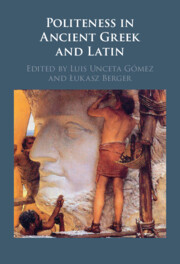Expressions of Time in Ancient Greek
How did Ancient Greek express that an event occurred at a particular time, for a certain duration, or within a given time frame? The answer to these questions depends on a variety of conditions - the nature of the time noun, the tense and aspect of the verb, the particular historical period of Greek during which the author lived - that existing studies of the language do not take sufficiently into account. This book accordingly examines the circumstances that govern the use of the genitive, dative, and accusative of time, as well as the relevant prepositional constructions, primarily in Greek prose of the fifth century BC through the second century AD, but also in Homer. While the focus is on developments in Greek, translations of the examples, as well as a fully glossed summary chapter, make it accessible to linguists interested in the expression of time generally.
- Revises our understanding of Greek case usage
- Refines the description of adverbial phrases of time
- Shows how Greek changed in the post-Classical period, especially as it came into contact with Latin and Semitic languages
Reviews & endorsements
'The book is handsomely presented and well edited … It will take pride of place in all discussions of grammatical Greek time in the future.' Simon Oswald, Bryn Mawr Classical Review
Product details
May 2020Paperback
9781108820257
341 pages
216 × 139 × 17 mm
0.4kg
22 tables
Available
Table of Contents
- 1. Expressions of time: an introduction
- 2. Expressions of time in Thucydides
- 3. Expressions of time: style, genre, and diachrony
- 4. Expressions of time in Biblical Greek
- 5. A retrospective: going back in time
- 6. Summary.






